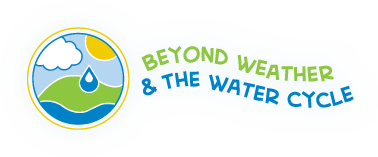Did you know that your school librarian can also help your students learn science topics such as climate? Your school librarian has much more than book checkout and story time to offer you and your students!
Essential Principle 1: Correlation to Standards and Curriculum Connections
In this article we provide a list of learning objectives and excerpts from the National Science Education Standards that are associated with Principle 1 concepts. We also provide information on some common misconceptions on light, heat, and the seasons, plus tools for formative assessment and ideas for teaching the correct scientific concepts.
The Sun: Earth’s Primary Energy Source
This article provides background science content knowledge for understanding Essential Principle 1: the Sun is the primary source of energy for Earth’s climate system.
Making Predictions: A Strategy for Reading and Science Learning
Making predictions is a strategy in which readers use information from a text and their own personal experiences to anticipate what they are about to read. A reader involved in making predictions is focused on the text at hand, constantly thinking ahead and also refining, revising, and verifying his or her predictions. This strategy also helps students make connections between their prior knowledge and the text.
Professional Bookshelf: Print Publications
This article provides a list of professional development print publications that supports exemplary science and literacy instruction.
Visualizing Informational Text
This article discusses the reading comprehension strategy of visualizing and provides resources for further exploration.
Professional Bookshelf: Print Publications
This article provides a list of professional development print publications that support exemplary science and literacy instruction.
Buckets of Fun with Argument Driven Inquiry in Your School Library!
This article describes the instructional model, Argument-Driven Inquiry, and explains how classroom teachers and school librarians can collaborate to put this model into practice.
Essential Principle 2: Correlation to Standards and Curriculum Connections
In this article we provide a list of learning objectives and excerpts from the National Science Education Standards that are associated with Principle 2 concepts. We also provide information on some common misconceptions on heat and the greenhouse effect, plus tools for formative assessment and ideas for teaching the correct scientific concepts.
Climate: A Complex Interaction
This article provides background science content knowledge for understanding Essential Principle 2: Climate is regulated by complex interactions among components of the Earth system.
Lapbooks: Getting Creative with Science in the School Library
This article describes lapbooking, a creative application of science notebooking. Examples and resources are provided.
Inferring: Reading Between the Lines Isn’t Just for Reading Class
This article examines the skill of inferring in the context of reading comprehension and as a science process skill.
Professional Bookshelf: Print Publications
This article provides a list of professional development print publications that support exemplary science and literacy instruction.
The Biosphere/Climate Connection
This article provides science content knowledge for understanding Essential Principle 3 of Climate Sciences: Life on Earth depends on, is shaped by, and affects climate. The essence of this principle is that life affects climate and in turn, the climate dictates where and how species can survive.
Essential Principle 3: Correlation to Standards and Curriculum Connections
In this article we provide a list of learning objectives and excerpts from the National Science Education Standards that are associated with Principle 3 concepts. We also provide information on some common misconceptions – adaptation and natural selection, plus tools for formative assessment and ideas for teaching the correct scientific concepts.
Essential Principle 4: Correlation to Standards and Curriculum Connections
This articles includes the National Science Education Standards and misconceptions associated with Principle 4 of the Essential Principles of Climate Sciences: Climate varies over space and time through both natural and man-made processes.
Asking Questions, All the Time
This article discusses the reading comprehension strategy of questioning and how questioning differs in science and literacy instruction. Resources for further reading are provided.
A Science Fair Makeover in Your School Library!
This article describes how school librarians can help with science fairs.
Professional Bookshelf: Print Publications
This article provides a list of professional development print publications that support exemplary science and literacy instruction.
Earth’s Changing Climate: Natural Variation and Human Impact
This article provides background science content knowledge for understanding Essential Principle 4: Climate varies over space and time through both natural and man-made processes.
Evaluating in Reading and Science
This article discusses the reading comprehension strategy of evaluating text.
Investigate a Path to High-Quality Information in Your School Library!
This article discusses web site evaluation and suggests some ways elementary teachers can work with the school librarian to teach this skill.
Earth’s Changing Climate: How Do We Know What We Know?
This article provides background science content knowledge for understanding Essential Principle 5: Our understanding of the climate system is improved through observations, theoretical studies, and modeling.
Essential Principle 5: Correlation to Standards and Curriculum Connections
In this article we provide a list of learning objectives and excerpts from the National Science Education Standards that are associated with Principle 5 concepts. We also provide information on some common nature of science misconceptions and ideas for teaching the correct scientific concepts.
Professional Bookshelf: Print Publications
This article provides a list of professional development print publications that supports exemplary science and literacy instruction.
BYOA: Bring Your Own Advocate!
This article discusses how school librarians can serve as an advocate for the use of social media at school.
Making Connections
This article provides background information and resources on the reading comprehension strategy of making connections.
Essential Principle 6: Correlation to Standards and Curriculum Connections
In this article we provide a list of learning objectives and excerpts from the National Science Education Standards that are associated with Principle 6 concepts. We also provide information on some common nature of science misconceptions and ideas for teaching the correct scientific concepts.
Professional Bookshelf: Print Publications
This article provides a list of professional development print publications that supports exemplary science and literacy instruction.
Humans: A Force of Nature
This article provides background science content knowledge for understanding Essential Principle 6: Human activities are impacting the climate system which describes the causes and effects of human-induced climate change.
Summarizing and Synthesizing: What’s the Difference?
This article discusses summarizing and synthesizing, two reading comprehension strategies. The article provides background information for teachers and resources for further reading.
A Letter to Elementary Science Teachers
This article discusses how elementary teachers can collaborate with their school librarians to promote literacy and science learning.
Professional Bookshelf: Print Publications
This article provides a list of professional development print publications that supports exemplary science and literacy instruction.
Essential Principle 7: Correlation to Standards and Curriculum Connections
In this article we provide a list of learning objectives and excerpts from the National Science Education Standards that are associated with Principle 7 concepts. We also provide information on some common misconceptions on weather and the water cycle, plus tools for formative assessment and ideas for teaching the correct scientific concepts.
Climate Change: Consequences and Repercussions
This article provides background science content knowledge for understanding Essential Principle 7: Climate change will have consequences for the Earth system and human lives.



